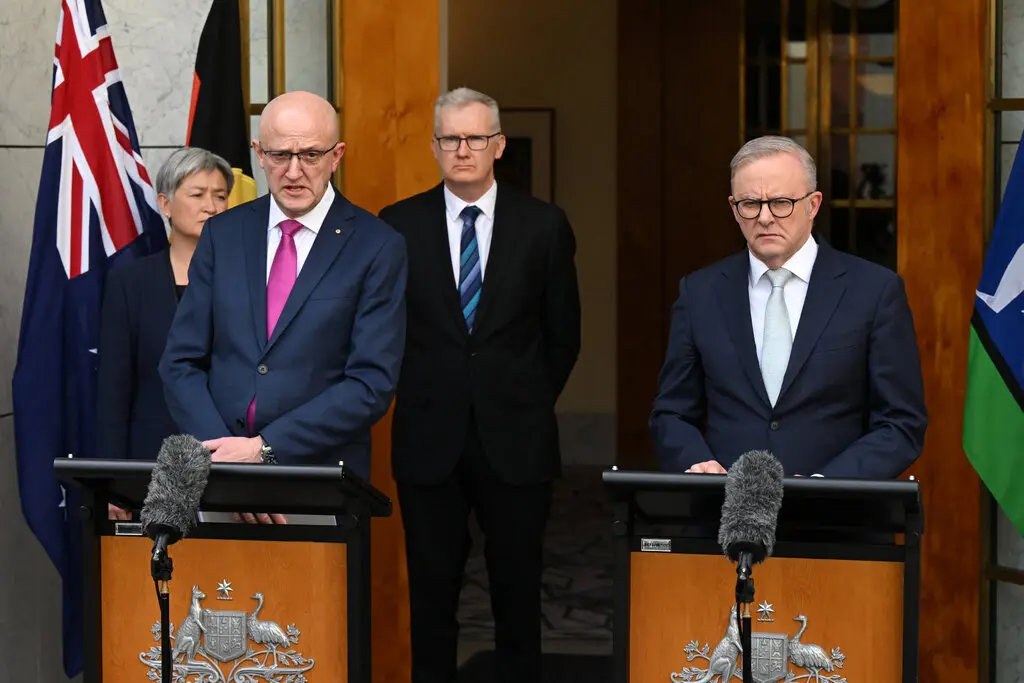In a bold and deeply emotional move, Australia has expelled Iran’s ambassador following intelligence revelations that shook the nation to its core. Prime Minister Anthony Albanese announced that Iranian operatives directed at least two antisemitic arson attacks on Australian soil — a reality that many find both heartbreaking and enraging.
This marks the first time since World War II that Australia has expelled a foreign ambassador, underscoring the gravity of the threat. According to Albanese, the attacks were “extraordinary and dangerous acts of aggression” meant to tear at the very fabric of Australia’s multicultural society.
One of the attacks involved the firebombing of a kosher café in Sydney’s Bondi in October 2024. The second — even more devastating — targeted the Adass Israel Synagogue in Melbourne just two months later. Thankfully, no injuries were reported. But the damage to trust, safety, and community morale runs far deeper than any physical scars.
“These were not random acts,” Albanese stated. “They were calculated attempts by a foreign power to create fear and division among Australians.”
The government has now declared Iranian ambassador Ahmad Sadeghi persona non grata, along with three other officials, all of whom have been given seven days to leave the country. At the same time, Australia has withdrawn its ambassador from Tehran and closed its embassy, effectively halting diplomatic operations that have existed since 1968.
Behind these actions lies the work of Australia’s intelligence agency, ASIO. Director-General Michael Burgess called the investigation “painstaking” and confirmed links between the arson attacks and Iran’s Islamic Revolutionary Guard Corps (IRGC) — a group Australia will now formally list as a terrorist organization.
What’s perhaps most chilling is the hidden network the IRGC reportedly used. Through proxies and veiled communication channels, they operated under the radar — until now. While Iran’s diplomats in Australia were not found complicit, the shadow of the Revolutionary Guard loomed large over these operations.
“This is about protecting Australians and making it clear: we will not tolerate foreign interference or targeted hate,” said Foreign Minister Penny Wong. While diplomatic channels will remain open for critical communication, Australians in Iran have been strongly advised to leave as consular support has become “extremely limited.”
The emotional toll is undeniable. Daniel Aghion, president of the Executive Council of Australian Jewry, acknowledged the significance of the breakthrough but warned of lingering fear. “There will be great anxiety that we have been targeted in such a callous and calculated way… because of who we are.”
Indeed, these events unfolded against the backdrop of the Israel-Gaza war, a time when global tensions were already inflamed. The Melbourne synagogue fire — one of the most destructive antisemitic incidents in recent memory — had initially been treated as a suspected hate crime but has now been confirmed as part of a broader, foreign-directed campaign.
Security analysts say the diplomatic fallout with Iran is likely to be limited, given the lack of strong military or intelligence ties between the two nations. But the symbolic impact is massive.
In a powerful statement, Israel’s embassy in Australia welcomed the move to label the IRGC as terrorists — a demand that has echoed for years.
This isn’t just a political decision. It’s a message — one that says hate will not be tolerated, and that Australia stands firm in defending unity, safety, and human dignity.




